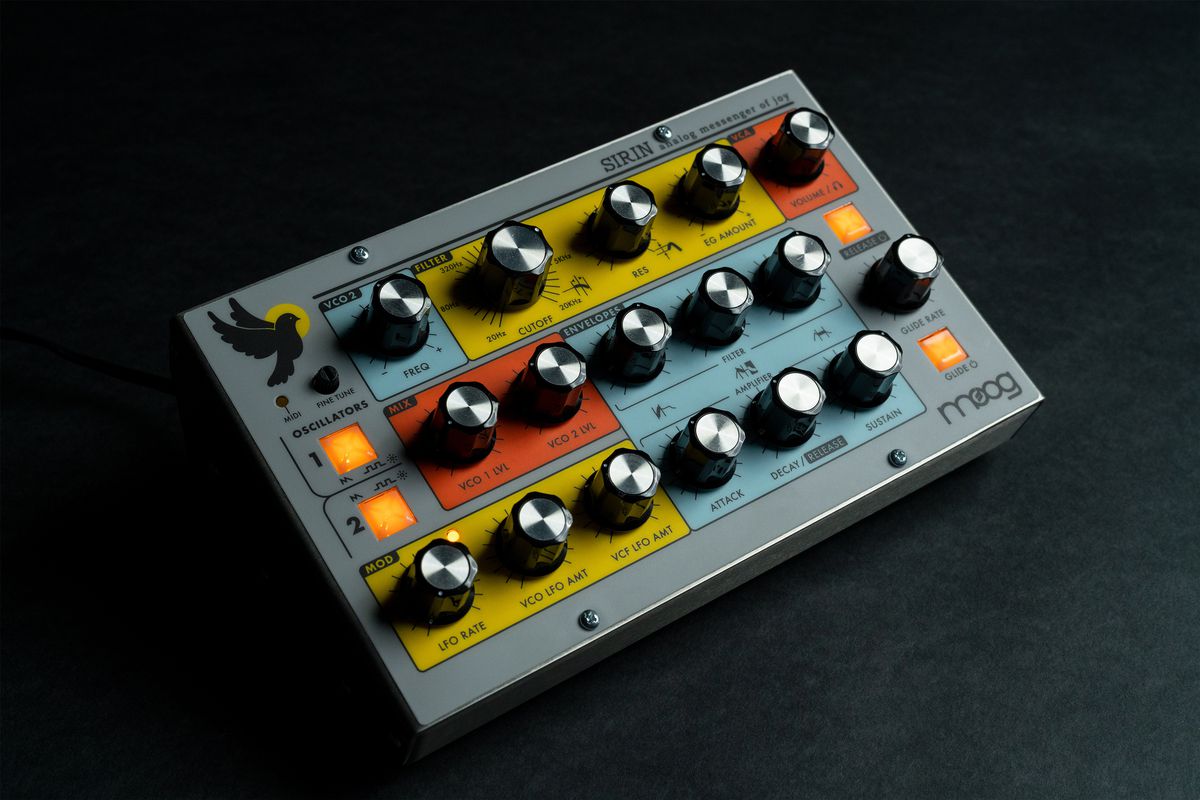Iconic synth maker Moog is technically showing at this year’s NAMM show, but in true Moog style, there’s no actual booth. Instead, the North Carolina-based company opted to create an off-site pop-up called the Moog Island Of Electronicus where it debuted its newest offering: an analog synth called Sirin. (Fun fact — the original “Island Of Electronicus” was a trippy, immersive experience the company came up with in 1971, replete with plush bean bags to sit on, stained glass, and of course, synths to play with.)
The Moog Sirin feels like it borrows from many other Moog products, but with key tweaks. It’s housed in a brushed stainless steel enclosure with a compact layout that harkens to the Minitaur synth, and it leans into a retro design feel not unlike its semi-recent Grandmother synth. Inside, Sirin has a sound engine based on the Taurus — a foot-operated analog synth Moog first developed in 1975. Unlike previous iterations of the Taurus, this is the first Taurus-based instrument from Moog that has a wide frequency range capable of going up into higher octaves (reaching notes as high as D8).

This means the Sirin can not only produce classic growling Moog bass, but it can go high enough to make sounds that can be leads, too. On top of that, the Sirin can be connected directly to any MIDI-note controller or, for ultimate control over the shape of the sound, to a computer via USB. If you do this, there’s the option of using the synth’s dedicated Editor Librarian Software (available for both PC and Mac), that lets you tweak and automate every parameter, manage patches, unlock six additional LFO waveforms, and more.
As far as what’s actually in the unit itself, Sirin’s fully-recallable analog sound engine has two re-engineered analog Taurus bass oscillators, a classic Moog ladder filter (which provides rich resonance and self-oscillation), two ADSR envelopes, and a multi-wave LFO.
Moog’s Sirin is priced at $599, which is… not bad. If you’re interested in one of these blissed-out vibey synths, be aware Moog is only constructing 2,500 at its Asheville production facility, after which, the company says with finality, “no more will be available.” However, Moog is known for both limited-edition items and reviving older treasured models so forever might not exactly mean “forever.” But, should you miss out on grabbing one now, chances are it will be a very long time before it resurfaces, if Moog ever decides to make more.
https://www.theverge.com/2019/1/25/18197868/moog-sirin-analog-synth-bass-leads-taurus-design-pricing-features-release-date-namm-2019

